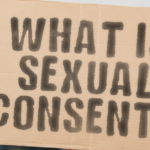The New Consent Directions in Jury Trials for Sexual Offences

The Crimes Legislation Amendment (Sexual Consent Reforms) Act 2021 (‘the Amending Act’) came into effect on 1 June 2022 (NSW), overhauling the definition of consent as it relates to certain sexual offences and revising the meaning of sexual intercourse, sexual touching and sexual act, as contained in the Crimes Act 1900 (NSW).
The Amending Act also introduced provisions which require judges to direct jurors on matters relating to consent. These new requirements are contained in Part 5, Division 1, Subdivision 3 of the Criminal Procedure Act 1986 (NSW) (‘the Act’).
The Subdivision spans sections 292 to 292E of the Act and is intended to make it more likely that complainants in jury trials for the stated offences will be believed, regardless of how implausible their evidence may seem or how unbelievable they may appear in court.
By requiring judges to give such directions of law to the jury, the new provisions arrogantly, paternalistically and condescendingly assume that jurors are unable to make decisions regarding credibility based on their own life experiences, and significantly increase the likelihood of innocent people being convicted of sexual offences where consent is at issue.
In any event, here is an outline of the new provisions.
General provisions
Section 292 of the Act contains general provisions relating to consent directions; specifically, the offences to which they apply and the circumstances, form, stage of proceedings and frequency in which they are to be given.
Application of consent directions
Section 292(1) of the Act makes clear that the directions contained in the following sections apply to trials relating to accusations of:
- Sexual assault under section 61i of the Act, which carries a maximum penalty of 14 years in prison,
- Aggravated sexual assault under section 61J, which carries a maximum of 20 years,
- Aggravated sexual assault in company under section 61JA, which carries a maximum of life in prison,
- Sexual touching under section 61KC, which carries a maximum of 5 years,
- Aggravated sexual touching under section 61KD, which carries a maximum of 7 years,
- Sexual act under section 61KE, which carries a maximum of 18 months, and
- Aggravated sexual act under section 61KF, which carries a maximum of 3 years.
Use of consent directions
Section 292(2) of the Act directs that a judge must give one of more of the directions in the sections that follow if:
- There is a good reason to give the direction (which is a discretionary matter), or
- If requested by a party to do so, unless there is a good reason not to give the direction.
The former subsection is a discretionary matter whereas the latter legally compels a judge to give a requested direction unless there are good reasons for it not to be given.
Given the directions in the following sections invariably benefit the prosecution, the practical reality is only prosecutors will be requesting them.
Form of consent directions
Section 292(3) makes states that a judge is not required to use a particular form of words when giving a consent direction – the words used are at the judge’s discretion.
Timing and frequency of consent directions
And section 292(4) provides judges with discretion to give a consent direction:
- At any time during the trial, and
- Repeatedly during the same trial.
Non-consensual sexual activity can occur in any situation and between anyone
Section 292A of the Act contains the direction that non-consensual sexual activity can occur:
- In many different circumstances, and
- Between different kinds of people, including those who:
- Know one another,
- Are married, or
- Are in an established relationship.
Consent cannot be inferred from an unusual or lack of response
Section 292B contains the direction that:
- There is not typical or normal response to non-consensual sexual activity,
- People may respond to such activity in different ways, including by freezing and not saying or doing anything, and
- You must avoid making assessments on preconceived ideas about how a person may respond.
Consent cannot be inferred from the absence of a threat, violence or injury
Section 292C contains the direction that:
- A person who does not consent to sexual activity need not have been threatened, subjected to violence or injured, and
- The absence of a threat, violence or injury does not necessarily mean the complainant is not telling the truth.
Lack of credibility cannot be inferred by demeanour on the witness stand
Section 292D contains the direction that:
- Trauma may affect people differently and some may show obvious signs of emotion or distress while giving evidence in court, while others may not, and
- The presence or absence of emotion or distress does not necessarily mean a person is not telling the truth.
This direction essentially tells jurors not to trust their own life experiences when it comes to assessing whether a complainant is telling the truth on the witness stand, but rather to give complainants ‘the benefit of the doubt’; in other words, to err on the side of believing a complainant regardless of whether their demeanour suggests they are being untruthful.
A direction which seeks to usurp both the main reason we have juries – for accused persons to be judged by their peers on matters of fact – and the presumption of innocence – that any benefit should be given to accused persons considering they face severe consequences if convicted, undermines fundamental principles which underpin our criminal justice system.
The direction swings the pendulum sharply in favour of the prosecution, and has the potential to lead to grave injustice.
Jurors must be given enough respect to determine – without interference – whether a witness is telling the truth; whoever the witness may be.
Consent cannot be inferred from clothing, appearance, intoxication or presence at a location
And section 292E contains the direction that it should not be assumed a person consented to sexual activity because he or she:
- Wore particular clothing or had a particular appearance,
- Consumed alcohol or another drug, or
- Was present at a particular location.
Again, the question of whether a witness is telling the truth must be left to jurors – who should be given enough respect to determine for themselves, considering all of the circumstances of the case, whether or not a witness is telling the truth.
Facing trial for a sexual offence?
If you have been accused of a sexual offence, it is vital to secure the services of a criminal defence team with specialist knowledge and extensive experience in defending and winning these types of cases.
The defence team at Sydney Criminal Lawyers has a long track record of overcoming legal obstacles that have been placed before defendants in these types of cases in recent years, including laws which attempt to restrict access by the defence to certain materials (such as counselling and medical notes), prohibit the elicitation of certain types of evidence (such as that of past sexual experience), expand the scope of the offences (so as to make them cover a broader range of situations), impose ‘affirmative consent’ and ‘reasonableness’ obligations on defendants, require directions such as those outlined above and so on.
In fact, in the year to date our team has already finalised three District Court sexual assault trials whereby our clients were each accused of multiple sexual offences, and have achieved verdicts of not guilty on all charges for each of our clients.
Our exceptional track record in these types of cases spans decades, and you can rest assured our defence team will provide you with the highest quality legal representation in your case and work tirelessly to achieve the optimal outcome, so you can move forward with your life.
Call us today on (02) 9261 8881 and let us take care of the legal side of things, so you can focus on yourself and your loved-ones.
Receive all of our articles weekly
Related Articles
RELATED LEGISLATION
- Section 61i Crimes Act 1900 | Sexual Assault
- Section 61J Crimes Act 1900 | Aggravated Sexual Assault
- Section 61JA Crimes Act 1900 | Aggravated Sexual Assault in Company
- Section 61KC Crimes Act 1900 | Sexual Touching
- Section 61KD Crimes Act 1900 | Aggravated Sexual Touching
- Section 61KE Crimes Act 1900 | Sexual Act
- Section 61KF Crimes Act 1900 | Aggravated Sexual Act
- Section 61HE Crimes Act 1900 | Consent in Sexual Assault Cases
- Section 61HI Crimes Act 1900 | Consent Generally
- Section 61HJ Crimes Act 1900 | Circumstances in Which There is No Consent
- Section 61HK Crimes Act 1900 | Knowledge about Consent






